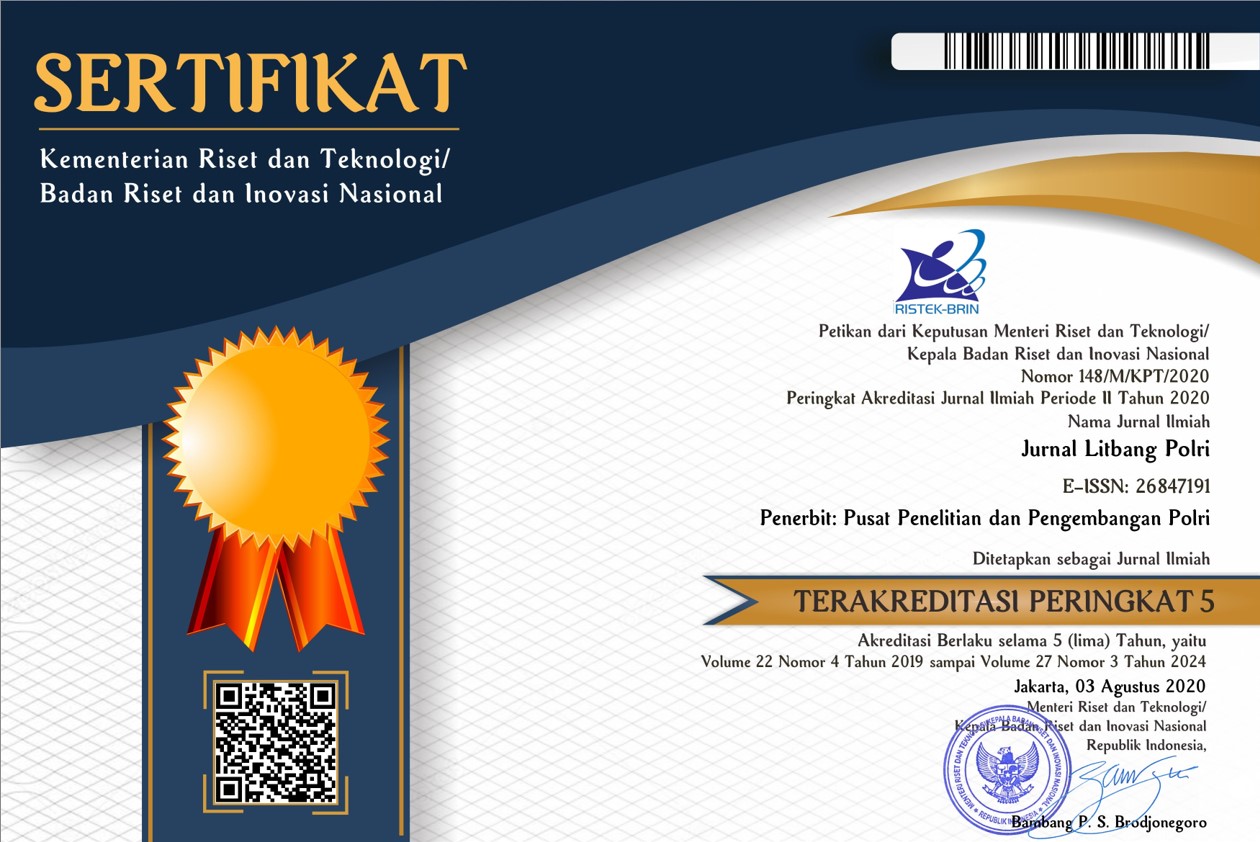Ensuring Public Compliance during COVID-19 through the Enforcement of Bylaw by National and Civil Service Police in Bogor Regency
Abstract
This study aims to examine the implementation mechanisms of West Java Province Bylaw Number 5/2021 as a form of discretion in interpreting national Covid-19 regulations. It specifically focuses on the roles of the Indonesian National Police and the Civil Service Police in enforcing health protocols, within the framework of an integrated criminal justice system intended to prevent the spread of Covid-19. A descriptive qualitative approach is applied, using triangulation through literature reviews, interviews, and case studies to ensure validity and reliability of findings. The findings indicate that an integrated criminal justice system has been effectively implemented, aligning institutions toward the shared goal of health protocol enforcement. The approach has improved public compliance. However, operational challenges remain, including reliance on quantitative performance indicators for targeting offenders, outdated administrative processes, legal constraints on teleconference-based trials, and difficulty balancing the severity of fines with public burden and deterrence effectiveness. While the integrated system has largely achieved its law enforcement objective during the pandemic, further improvements are necessary to enhance efficiency, legal adaptability, and fairness in implementation. The study suggests the need to modernize administrative procedures, revise legal frameworks to accommodate digital judicial processes, and reassess performance and penalty metrics to sustain public compliance without undue hardship.
The copyright of articles published in Jurnal Litbang Polri remains with the author. However, by submitting the manuscript and agreeing to its publication, the author grants Jurnal Litbang Polri the first publication right to:
-
Publish the article openly (open access)
-
Distribute, store, and reproduce the article in both print and electronic formats
-
Archive the article in institutional digital repositories, scientific indexing services, and publication databases
Authors retain the right to use their article for personal, academic, or institutional purposes, provided that the original source of publication in Jurnal Litbang Polri is properly cited.

 Jalan Raya Tonjong, Desa Cimanggis, Bojonggede, Kabupaten Bogor.
Jalan Raya Tonjong, Desa Cimanggis, Bojonggede, Kabupaten Bogor. 










